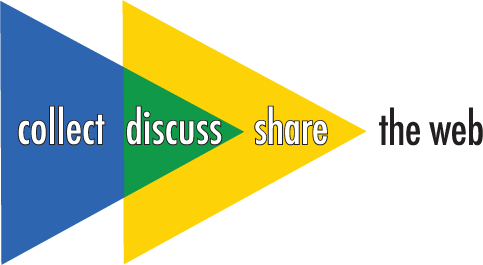Long-term Sustainability of PressForward
As this year’s Open Access Week winds down, I’m really pleased to share that the Alfred P. Sloan Foundation will generously fund a new, three-year phase of PressForward to ensure its long-term sustainability. The key deliverables of the grant are the launch of a dozen high-quality science publications and the continued refinement of the PressForward software to lower the barrier to entry for new research groups who want to create a collaborative publication.
While “sustainability” is probably the most dreaded criterion of any grant application, it’s an area that I actually enjoy working on in its own right. At RRCHNM we’ve been fortunate to shepherd Zotero and Omeka through phases of grant funding that were explicitly intended to lay the foundation for the projects’ long-term viability, and we’ve also worked hard to establish an effective business model to keep those projects running and growing indefinitely, on their own steam.
Zotero, for example, has been entirely sustainable since April 2013. We continue to do some important grant-funded work, but these projects are now essentially above and beyond the costs of Zotero’s infrastructure and core development, which are sustained via the sale of Zotero services (primarily cloud syncing and collaboration).
While Zotero might seem like an edge case — how many DH projects have millions of users, some fraction of whom are willing to pay for an optional service? — the principles behind its path to sustainability are fairly generalizable:
- Build something good, open, and free that’s easy to use and encourages others to help develop it
- Get as many people as possible using your project in order to benefit from whatever percentage of that user base “converts” to contributing in some tangible way (e.g. informal outreach, code contributions, paying for optional services)
At first glance this model might look a lot like a business plan for a crappy startup. But there are two key ways in which it differs. First of all, the “open” aspect isn’t just good politics: it’s a powerful motivator for encouraging community involvement in a project, and it signals that the project isn’t simply top-down. Second, there are no “???” and “Profit!” phases to the plan, which frees us take a long-range perspective on user experience.
Launching a new project is of course exciting, both for developers and for funders. But establishing a project on sound footing for the long-term is particularly rewarding, because it means that all the hard work and money and good will that went into the project will continue to benefit the community. We’re all extremely fortunate that Sloan and other funders (e.g. Mellon and NEH) are increasingly sensitive to the importance of long-term sustainability, and that they are taking an active interest in working with projects to put them on a sustainable path.
We’ll be sharing more details next week about the specifics of PressForward’s new direction phase in a formal announcement at the project’s blog, but in the meantime, congratulations to the entire PressForward team!

Leave a comment